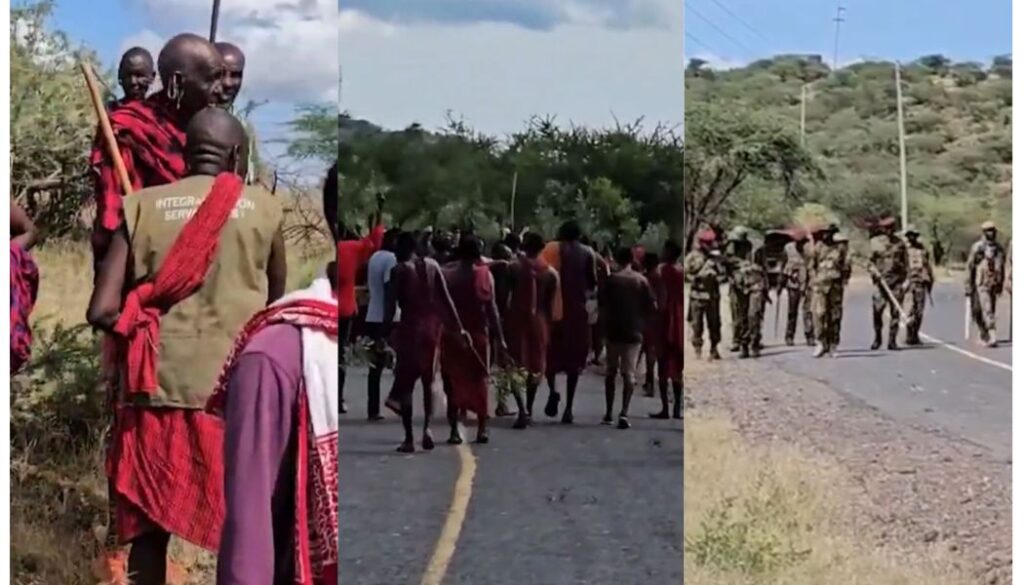Kajiado residents protest over carbon credit deal, refuse to hand over land

Kajiado residents protest over carbon credit deal, refuse to hand over land
Tension gripped Oldonyonyokie Group Ranch in Kajiado County after a meeting between local residents and representatives of a foreign company seeking to lease community land for a carbon credit project was disrupted by protests.
The proposed deal would have seen community members sign over rights to their land for a 40-year lease.
However, the meeting quickly turned chaotic as a group of young men from the community opposed the plan.
Chanting slogans and waving twigs in a traditional show of dissent, the youth urged their parents not to sign the agreement.
They even warned that endorsing the deal without their consent would escalate tensions within the community.
Police officers were deployed to the area to maintain order and prevent any outbreak of violence.
Notably, carbon credits are tradable certificates that represent the reduction or removal of one metric ton of carbon dioxide or its equivalent in other greenhouse gases.
These projects often involve activities like reforestation, renewable energy, or sustainable agriculture practices that sequester carbon or prevent its release into the atmosphere.
Locally, carbon credit initiatives have been implemented to incentivize environmental conservation and provide alternative income sources for landowners and communities.
US report lists Kenya among the leading markets for counterfeit goods
Only six counties obey 35% wage-bill-to-revenue ratio as Nairobi leads in non-compliance
Government proposes increasing tax-free per diem allowances for private employees
Ksh4.3 trillion budget estimate to undergo revision as Cabinet approves Finance Bill 2025
Cabinet approves opening of a Consulate General in Haiti
Government flags 58 betting websites operating without authorization [Full List]
For instance, the Kasigau Corridor REDD+ project, managed by Wildlife Works, has been operational since 2010.
The project protects forests between Tsavo East and Tsavo West national parks, generating carbon credits by preventing deforestation.
Revenues from these credits are shared with local communities, supporting social development and conservation efforts.
Leasing land for carbon credit projects involves agreements between landowners and project developers, stipulating land use restrictions.
For example, landowners may need to adopt practices like no-till farming, refrain from deforestation, or engage in reforestation efforts.
In return, they receive compensation, which can be a fixed annual payment or a share of the revenue from sold carbon credits.
Gachagua holds talks with Linturi and Muturi
Atwoli to defend his COTU position in elections next year
Kenya inflation rate rises to 4.1% in April
Cabinet orders all employers to calculate employee tax reliefs and exemptions on PAYE to relieve KRA
UNHRC Council to review Kenya’s human rights record starting May
Win for Judges as Cabinet approves retirement benefits
Follow us





